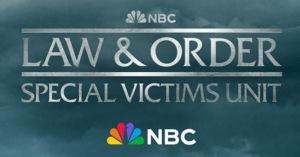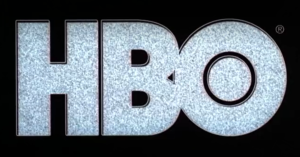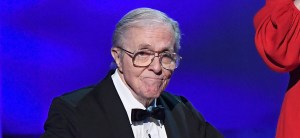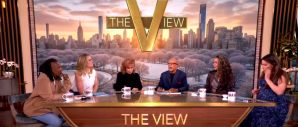The reviews are in for Netflix‘s Hillbilly Elegy, and they are not looking good. The new drama is based on a memoir by J.D. Vance titled Hillbilly Elegy: A Memoir of a Family and Culture in Crisis, and fans feel that it does not live up to the source material. Even performances by Amy Adams and Glenn Close did not save the movie, in critics’ eyes.
Hillbilly Elegy is a new Netflix original film from director Ron Howard, with screenwriter Vanessa Taylor adapting the book into a script. It tells the story of three generations of the Vance family and their lives in a poor Appalachian community. It pays close attention to Vance — who is played by Gabriel Basso — and his relationship with his mother — played by Close. The movie addressed addiction, systemic poverty, and other aspects that helped land the book on the New York Times’ Bestseller list, but not as effectively, film critics say.
Videos by PopCulture.com
At the time of this writing, Hillbilly Elegy has a 25 percent score on the review aggregator site Rotten Tomatoes, based on a total of 136 reviews. Notably, the score among audience reviewers is much higher at 89 percent, based on only nine ratings.
Hillbilly Elegy is still completing a limited theatrical run right now, presumably in the hopes of qualifying for the Oscars. However, judging by the reception so far, it does not have a great chance. Here is a look at what the critics are saying.
‘A Requiem For Itself’

Critic Stephanie Zacharek wrote that Hillbilly Elegy is “a movie that courts sympathy for its characters yet ends up only as a requiem for itself,” in a review published by TIME Magazine. She did say that the movie “isn’t as terrible as the trailers make it look,” but her review did not get much more positive than that. However, did Zacharek praise Close’s performance, but thought that she was working with limited material. She wrote: “Actors aren’t the sole architects of even their greatest performances.”
‘Strange Stew of Melodrama, Didacticism and Inadvertent Camp’
In a review for The New York Times, A.O. Scott wrote: “The intentions are admirable: the filmmakers want to make room for J.D. at the table (Vance is credited as an executive producer) and to give his family story a fair hearing. But it can be hard to figure out what story the filmmakers think they should be telling.” Scott generally argued that the movie was scattered, and preoccupied with the culture clash of representing the American poor while contextualizing them in Vance’s Ivy League world.
‘Unwatchable’

St. Louis Post-Dispatch critic Daniel Neman bluntly called Hillbilly Elegy “unwatchable,” saying that the movie fails to thread the needle between honestly depicting life in Appalachia while conveying how harmful stereotypes are. This is one of the main reasons the source material was praised, an indeed, Neman writes that, along with the book’s subtitle, the movie “drops any hint of interest in the culture and concentrates exclusively on the family,” to its detriment.
‘Muddled and Deadening’
Like many other critics, Kevin Maher of The Times puts the blame for Hillbilly Elegy‘s failure squarely on the shoulders of director Ron Howard. He thought the actors’ performances were “wildly uneven,” but at least lent the movie some “star wattage.” By contrast, “the storytelling is inert and so tonally homogenous that the film amounts to little more than two hours of expletive-filled domestic abuse punctuated by solemn recitations of the oft-repeated (and, frankly, considering the context, hilariously ironic) motto: ‘Family’s the only thing that means a godd—.’”
‘A Solid Impression of A Good Movie’

Leigh Monson of WhatToWatch.com called Hillbilly Elegy “Oscar bait thrown out without a hook.” Like Neman above, Monson dislikes that the movie “attempted to strip away the judgmental shaming of the rural impoverished to leave a story about a man who achieved the American Dream by escaping poverty through hard work.” As with so many screen adaptations, changes to Vance’s book have fueled much of the dislike of this movie.
‘Like a Lifetime Movie’
CNN critic Brian Lowry reminded readers of how Vance’s book “won praise for its insight into the forgotten folk whose poverty and hopelessness prompted them to Embrace Donald Trump” in the 2016 presidential election — then points out how the movie fails to do the same. He went on: “These would theoretically be juicy roles for Adams and Close — about as unglamorous as you’ve ever seen them — but even with those stars letting loose, the conversations about broader cultural and economic challenges that the book triggered get obscured by what feels more like a Lifetime movie.”
‘Incongruity’

Alan Zilberman wrote that Hillbilly Elegy suffers from an “incongruity” between its protagonist’s nostalgia for his childhood, and the movie’s depiction of the brutality of his life. In his review for Washington City Paper, Zilberman wrote that the movie “has no answer” for this central disconnect, leaving the whole thing feeling disjointed.








